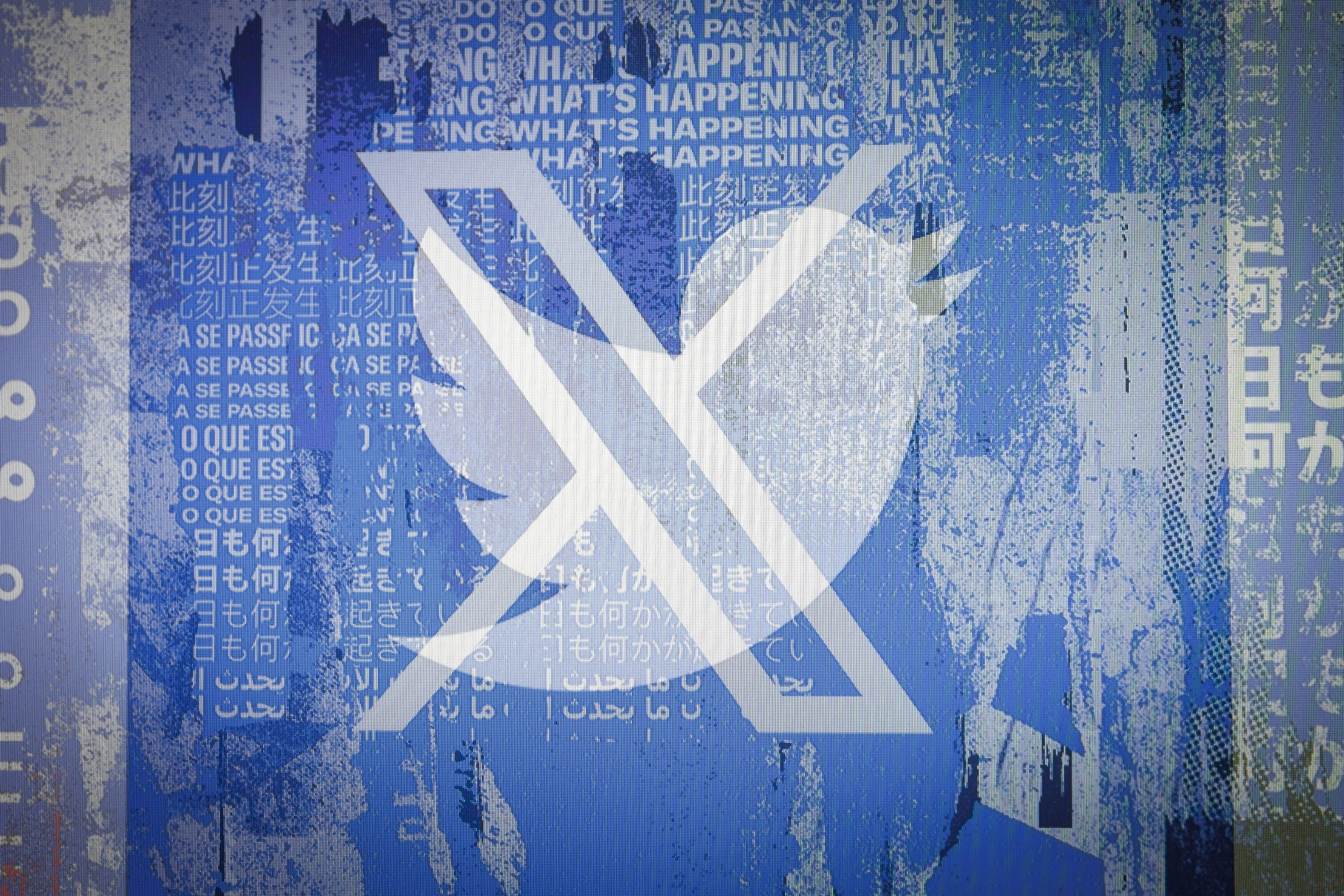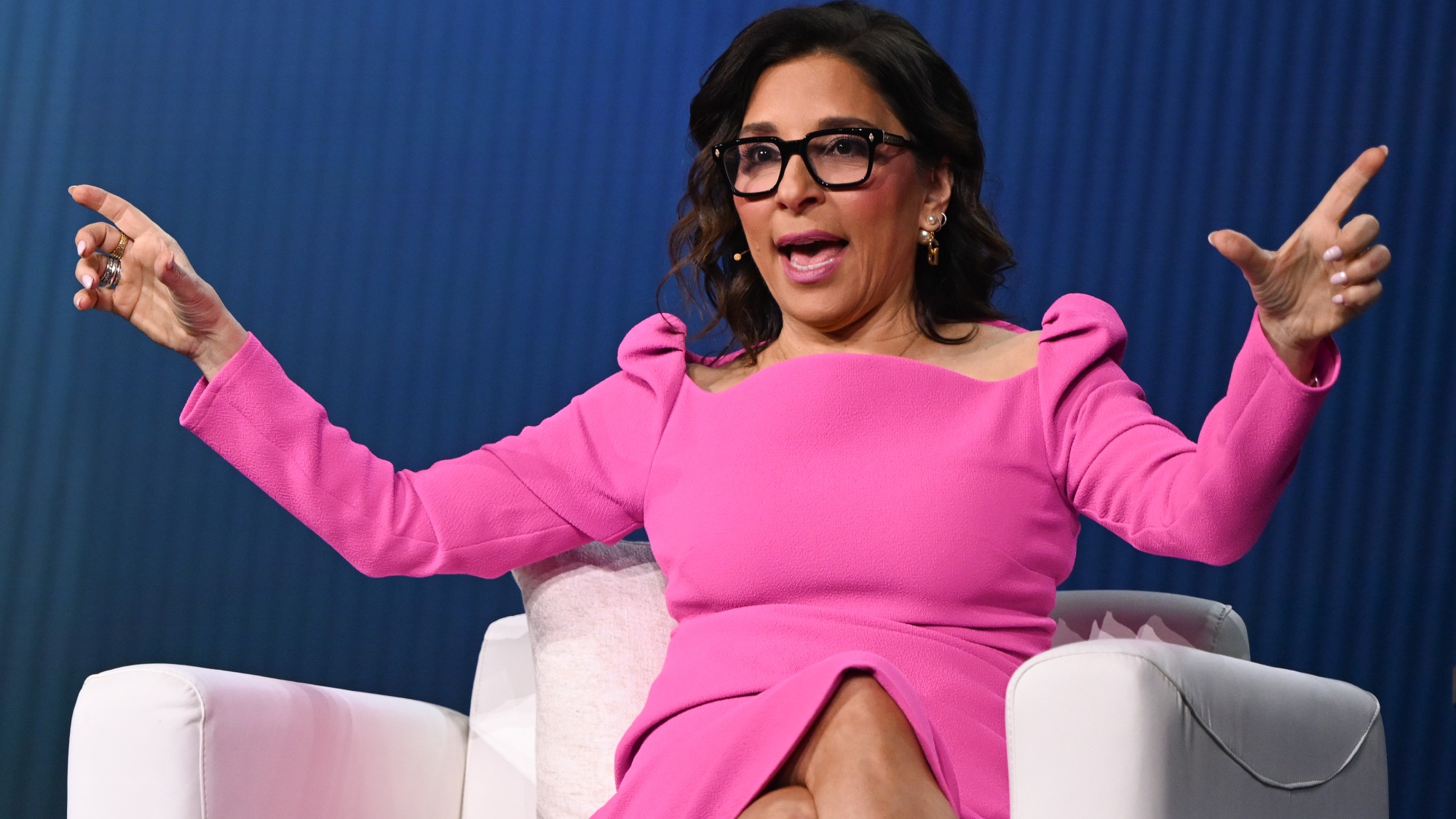Will Musk's rebranding ruin Twitter?
Is Musk dooming his own company by scrapping its valuable brand, or is it all leading to something bigger?


A free daily email with the biggest news stories of the day – and the best features from TheWeek.com
You are now subscribed
Your newsletter sign-up was successful
Elon Musk this week announced he was scrapping Twitter's iconic bird logo and renaming the social media platform X. "Soon we shall bid adieu to the Twitter brand and, gradually, all the birds," he declared in a tweet. Workers immediately started taking the Twitter sign off the company's San Francisco headquarters. They relabeled conference rooms — scrapping bird-related names like Aviary, Tern, Bluebird, Canary, and Mallard — with names like "eXposure," "eXult," and "s3Xy," according to The New York Times.
The billionaire Musk is using a letter he clearly loves — it's in the name of rocket company SpaceX and one of his electric cars, the Model X, at Tesla. He even named one of his kids X. The rebranding follows a series of controversial changes Musk has made at the social media company since buying it in October. He has laid off 6,000 employees (80 percent of Twitter's staff), changed and started charging for badges intended to verify users, and invited back users, including former President Donald Trump, who had been banned for violating rules on promoting violence.
Many Twitter users scratched their heads. Some critics called the new name and logo, an angular, stylized X, cold and off-putting. Marketing gurus said Musk was throwing away an iconic brand that is worth billions. Making a brand a verb is the "holy grail," Mike Proulx, a vice president and research director at Forrester, told The New York Times. "The app itself has become a cultural phenomenon in all sorts of ways. In one fell sweep, Elon Musk has essentially wiped out 15 years of brand value from Twitter and is now essentially starting from scratch." The platform formerly known as Twitter is already facing major challenges, like dwindling ad revenue and Meta's launch of rival app Threads. Is Musk dooming his own company by scrapping its valuable brand?
The Week
Escape your echo chamber. Get the facts behind the news, plus analysis from multiple perspectives.

Sign up for The Week's Free Newsletters
From our morning news briefing to a weekly Good News Newsletter, get the best of The Week delivered directly to your inbox.
From our morning news briefing to a weekly Good News Newsletter, get the best of The Week delivered directly to your inbox.
Musk has made Twitter a 'zombie'
Twitter has been officially killed by its "unhinged owner," said Oliver Darcy at CNN. "A zombie Twitter, known only as X, reluctantly endures. A warped and disfigured platform, X marches on like a White Walker, an ugly shell of its former self under the command of a loathsome leader." Musk has single-handedly transformed Twitter from a "fountain of authoritative information" into a platform "where trolls can pay a small fee to have their ugly content boosted ahead of reputable sources." On X, "journalists are banned or smeared while the most repellant and dishonest voices are elevated." The rules are unclear; the infrastructure is crumbling. X has none of Twitter's brand recognition but all of Musk's "toxic" baggage that has driven away users and advertisers.
It's oddly fitting that Musk is replacing the user-friendly "Twitter birdie" logo with the cold, angular X, said Virginia Heffernan in the Los Angeles Times. Musk's plans for the company clearly don't call for a "cute or optimistic or uptilted" image. "The name X and a severe, black logo are more apt for whatever baffling and galactic storm-trooping Musk wants to do with his interplanetary empire." With dangerous artificial intelligence set to fast replace more cuddly social media, maybe it's good to embrace design that says "keep out" rather than "come in." If "Twitter-turned-X is toxic," it might be good, for users if not the company, that its logo "recalls the skull-and-crossbones on cartoon bottles of poison."
Musk wants to build something bigger than Twitter
Musk is dumping the Twitter brand because he's out to build something bigger, said Arjun Kharpal at CNBC. He said in October that he was spending $44 billion to buy Twitter as an "accelerant to creating X, the everything app." People have compared his vision to a made-in-the-U.S.A. version of China's WeChat, the world's "biggest super app" operated by Chinese technology giant Tencent. WeChat lets its 1.3 billion users send instant messages like Meta's WhatsApp, but it also offers payments and a way to access e-commerce, banking, and other apps. But "trying to turn X into anything like WeChat is going to be a mammoth task," particularly because Musk won't benefit from "the factors that [have] helped the Chinese app's success — including China's 'mobile-first market'" and Beijing's blocking of potential foreign competitors like Twitter and Google.
Musk has already failed, said Jennifer Rubin at The Washington Post. He spent billions on an established company and turned it "into a cesspool of disinformation and hate speech," losing "more than two-thirds of the company's value." He's not building something bigger; he's presiding over the demise of something whose time has come, and gone. "Products and industries go out of fashion; customers spend their money elsewhere." If you run a great company, "keep valuable employees productive and please customers," you "grow and make money." If you "create havoc," fire your team, and "annoy customers," your employees find work elsewhere, and new rivals — like Meta's new Threads app — pop up to fill the gap. So when "rotten owners" like Musk fail, it's just a sign that capitalism is working as it should.
A free daily email with the biggest news stories of the day – and the best features from TheWeek.com
Harold Maass is a contributing editor at The Week. He has been writing for The Week since the 2001 debut of the U.S. print edition and served as editor of TheWeek.com when it launched in 2008. Harold started his career as a newspaper reporter in South Florida and Haiti. He has previously worked for a variety of news outlets, including The Miami Herald, ABC News and Fox News, and for several years wrote a daily roundup of financial news for The Week and Yahoo Finance.
-
 The environmental cost of GLP-1s
The environmental cost of GLP-1sThe explainer Producing the drugs is a dirty process
-
 Greenland’s capital becomes ground zero for the country’s diplomatic straits
Greenland’s capital becomes ground zero for the country’s diplomatic straitsIN THE SPOTLIGHT A flurry of new consular activity in Nuuk shows how important Greenland has become to Europeans’ anxiety about American imperialism
-
 ‘This is something that happens all too often’
‘This is something that happens all too often’Instant Opinion Opinion, comment and editorials of the day
-
 Elon Musk’s pivot from Mars to the moon
Elon Musk’s pivot from Mars to the moonIn the Spotlight SpaceX shifts focus with IPO approaching
-
 Moltbook: the AI social media platform with no humans allowed
Moltbook: the AI social media platform with no humans allowedThe Explainer From ‘gripes’ about human programmers to creating new religions, the new AI-only network could bring us closer to the point of ‘singularity’
-
 Will regulators put a stop to Grok’s deepfake porn images of real people?
Will regulators put a stop to Grok’s deepfake porn images of real people?Today’s Big Question Users command AI chatbot to undress pictures of women and children
-
 Inside a Black community’s fight against Elon Musk’s supercomputer
Inside a Black community’s fight against Elon Musk’s supercomputerUnder the radar Pollution from Colossal looms over a small Southern town, potentially exacerbating health concerns
-
 X update unveils foreign MAGA boosters
X update unveils foreign MAGA boostersSpeed Read The accounts were located in Russia and Nigeria, among other countries
-
 What's Linda Yaccarino's legacy? And what's next for X?
What's Linda Yaccarino's legacy? And what's next for X?Today's Big Question An 'uncertain future' in the age of TikTok
-
 X CEO Yaccarino quits after two years
X CEO Yaccarino quits after two yearsSpeed Read Elon Musk hired Linda Yaccarino to run X in 2023
-
 Musk chatbot Grok praises Hitler on X
Musk chatbot Grok praises Hitler on XSpeed Read Grok made antisemitic comments and referred to itself as 'MechaHitler'
